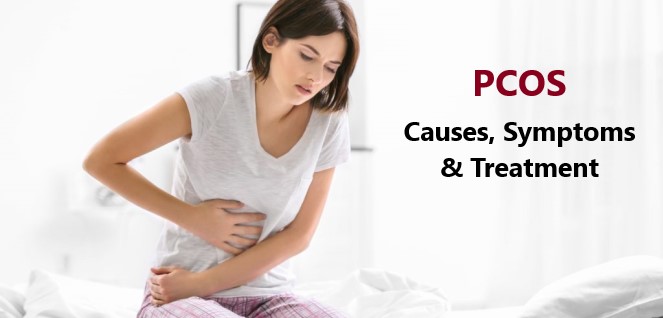Introduction
Polycystic Ovarian Syndrome (PCOS) is a hormone imbalance that can cause irregular periods, unwanted hair growth, and acne. PCOS often goes undiagnosed for years because the symptoms are so common. However, left unchecked it can lead to infertility and increased risk of diabetes and heart disease in women. In this article we will cover what PCOS is, how doctors diagnose it and the different treatment options available for those who are diagnosed with PCOS
Symptoms
PCOS is a complex disease that can cause a number of symptoms, including irregular periods, acne, unwanted hair growth, weight gain and difficulty becoming pregnant. These symptoms are caused by high levels of male hormones called androgens.
While the exact causes of PCOS are not known, there are several factors that may contribute to its development:
- Genetics: If you have family members with PCOS then this increases your risk for developing it yourself.
- Polycystic Ovarian Disease (PCOD) runs in families as well. Although not everyone who has children with polycystic ovarian disease will develop polycystic ovary syndrome themselves later on in life but it is more likely than not if parents had polycystic ovarian disease during their childbearing years then there’s an increased chance for another sibling or offspring to develop polycystic ovarian syndrome later on down the line too!
Causes
PCOS is a complex disease that’s caused by a combination of genetic and lifestyle factors. The exact cause of PCOS isn’t known, but it’s often attributed to the hormone imbalance caused by insulin resistance. Insulin is responsible for helping your body use glucose (sugar) from food as energy. When you have too much glucose in your blood, your pancreas releases insulin to help move more glucose into cells. When this happens repeatedly over time, the cells stop responding as well to insulin and become resistant to it—a condition known as type 2 diabetes mellitus (T2DM).
Insulin resistance can occur when there are high levels of male hormones called “androgens” in your system—in women with PCOS who don’t have polycystic ovaries (PCO), these levels tend to be lower than normal; however, those with PCO may have higher levels than usual due to their enlarged ovaries producing excessive amounts of male hormones such as testosterone or DHEA-S
Anovulation and infertility
PCOS is the most common cause of anovulation (the absence of ovulation) in women. This means that women with PCOS sometimes have difficulty getting pregnant.
In fact, one out of every five women with PCOS has infertility problems because their reproductive hormones are out of balance.
Metabolic syndrome and diabetes
Metabolic syndrome is a group of risk factors that increase your chance of developing heart disease and diabetes. These include:
- Weight gain
- High blood pressure (hypertension)
- High blood sugar levels (hyperglycemia)
- Excess body fat around the waist (abdominal obesity) in men or women, especially when it’s around the abdomen
- High levels of “bad” LDL cholesterol and other types of unhealthy cholesterol circulating in your bloodstream, as well as triglycerides—another type of fat found in your blood—that are high enough to damage arteries.
Other health concerns
PCOS is linked to a variety of other health concerns. These include:
- Depression
- Obesity, especially in the abdominal area (apple shape)
- High blood pressure (hypertension) and high cholesterol, both risk factors for heart disease
- Sleep apnea, a condition where you stop breathing for short periods during sleep
If you have PCOS, you are at increased risk of developing endometrial cancer, a type of uterine cancer that can lead to infertility if not treated. You may also be at an increased risk for diabetes and heart disease.
PCOS is a complex disease in which multiple problems occur together.
PCOS is a complex disease in which multiple problems occur together. It is not just one thing, but rather, a combination of symptoms and causes that combine to affect your health.
Conclusion
PCOS is a complex disease in which many problems occur together. It is a leading cause of female infertility and can be associated with other health concerns, such as diabetes and metabolic syndrome. PCOS is diagnosed using the Rotterdam criteria, which means that you need to have at least two of the three major symptoms: irregular periods, high male hormones (androgen levels) or ovarian cysts. While there are no cures, there are several treatments available to relieve some of these symptoms.
Consult with us at Irene IVF Centre and Start your PCOS treatment journey, we are here to help you.
For Consultation Call Us : +91-9810840455, 011 4155 1917 or email Us :- ireneivfcentre@gmail.com

